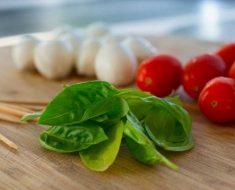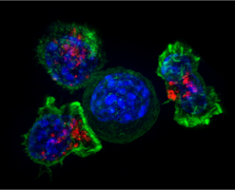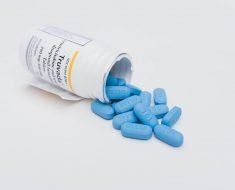
A common new year’s resolution for many is to improve health and fitness for the year ahead. Achieving optimal immune health while working on your fitness can be tough following the festive period in the peak cold and flu season.
Professor Glen Davison, a nutrition and exercise immunology expert and Head of the School of Sport and Exercise Sciences, shares his top tips for optimizing your immune system while trying to improve fitness this January.
Regular moderate activity
Evidence suggests that regular moderate activity is particularly beneficial for immune enhancement and reducing the risk of infection. Being physically active has many benefits including enhanced anti-inflammatory status, and a reduction in many lifestyle-related risk factors for chronic diseases such as obesity, type 2 diabetes and cardiovascular disease. Research has shown that some negative health effects can begin to emerge after even a few days of inactivity.
So, if you are stuck indoors it is really important to keep active. We also know that regular physical activity is associated with enhanced immune health and reduced illness risk. Exercise can also have beneficial effects on general well-being, mood and psychological state. It can reduce stress, improve sleep and more. All of these factors have beneficial effects on immunity.
All types of physical activity are beneficial, from walking to running and cycling, from gardening to clearing out the garage.
A healthy and balanced diet
We know that nutritional deficiencies have negative effects on immune function, so we should always aim to have a healthy and balanced diet to avoid such deficiencies. Individuals should try to avoid extreme and fad diets (which are usually quite popular at this time of year), and instead focus on balance. Eat plenty of fresh fruit and vegetables daily—try to eat a variety of different ones, of various colors. This may help ensure adequate intake of essential nutrients with little risk of excess intake of any single nutrient.
Individuals should also avoid drinking too much alcohol—this can have negative effects on immunity and resistance to infections.
Be cautious of supplements
Multinutrients may be beneficial for those with a pre-existing deficiency but not if normal dietary intake is sufficient. Supplementation with individual nutrients is generally not recommended.
Some supplements including probiotics, and some plant-derived products (Echinacea, black elderberry, and some polyphenols) may be beneficial but only in specific situations/contexts. Individuals should consider their personal needs, use caution, and avoid the indiscriminate use of supplements.
Source: Read Full Article





